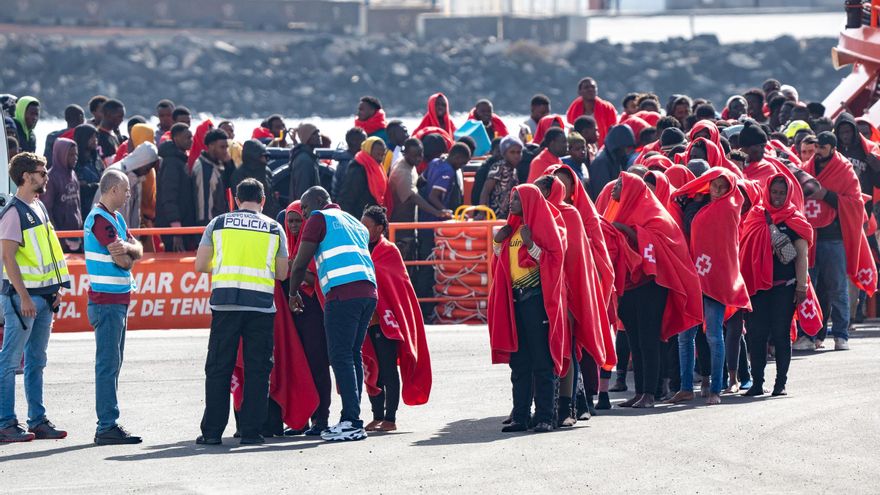Upcoming high-level talks on migration
The Lehendakari (Basque President), Imanol Pradales, announced this Thursday that he will travel to the Canary Islands next week. There, he will hold meetings on Thursday and Friday with the Canary Islands President, Fernando Clavijo, to address the migration issue, among other topics.
A history of seeking equitable solutions
In an interview with RNE, Pradales recalled that at the Conference of Presidents in Santander in December 2024, he and Clavijo presented a joint proposal for the distribution of migrant minors who were in the Canary Islands. This effort eventually led to a successful agreement. A subsequent decree from the central government established a mandatory distribution system, which “now obliges all autonomous communities to show solidarity and ensure an equitable distribution of unaccompanied foreign minors across the Peninsula.”
Pradales also noted that at the Conference of Presidents in Barcelona, they proposed—”without any success”—the need for a structural state-wide migration pact. This same initiative was raised again during the Bilateral Commission of Euskadi-State in July but has, so far, “not gained any traction.”
Addressing tensions with Andalusia
The Basque leader also revealed that the Basque and Andalusian governments will meet this coming Monday in Madrid to collaborate on the issue of unaccompanied migrant minors arriving in the Basque Country from Andalusia. This meeting comes after Pradales personally called the President of Andalusia, Juan Manuel Moreno, following what he described as “absolutely misguided and erroneous” public statements.
Moreno had claimed that the Basque Country had been officially recognized as having a “Northern Border” effect, which allegedly exempted it from having to host unaccompanied foreign minors and made it “favored” in the distribution carried out by the Spanish government. Pradales wanted to explain personally that it was “absolutely false, incorrect, and did not correspond to reality” that Euskadi had been granted such a status.
The value of a northern border designation
“If only that were the case,” Pradales commented, “because it’s true that those who have the Northern Border recognition—namely the Balearic Islands, the Canary Islands, Ceuta, and Melilla—receive specific economic treatment and a series of determined aids from the Spanish government.” He stated that he understands Andalusia’s desire for this designation, as “migrant boats also arrive on the coasts of Andalusia, which has 900 kilometers of coastline.”
Pradales added that he finds this request “absolutely legitimate,” just as he considers the Basque Country’s own situation legitimate. “We have a ‘muga’ (border) effect with the French state,” he explained, “and in recent years we have had to attend to 40,000 migrants in transit.”
Collaboration over confrontation
The Lehendakari expressed his confusion over why “the communities of Andalusia and Euskadi should be pitted against each other.” He reminded the Andalusian president that “one out of every two unaccompanied minors who arrives in the Basque Country comes by bus from Andalusia.”
Stressing that this is a crucial point to consider, Pradales said he asked Juanma Moreno for collaboration to address this phenomenon, noting that there are also “mafias” exploiting these minors. He emphasized that these children “are not merchandise” but people.
Fortunately, the response from Moreno was positive. The relevant ministers from both regions, Nerea Melgosa from the Basque Country and her Andalusian counterpart, are scheduled to meet this Monday in Madrid to establish a working group. “This is how I understand politics,” Pradales concluded. “There is a problem, we must address it, talk about it, and try to avoid permanently generating tension through the media. That’s what I did; I called the President of Andalusia directly, and we have now set up a working group that I hope will bear fruit, regardless of the political color of each community’s president.”

